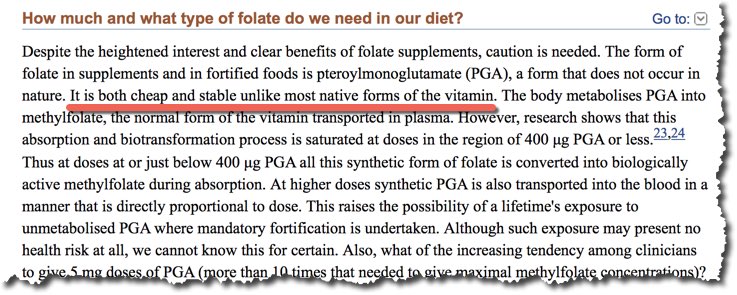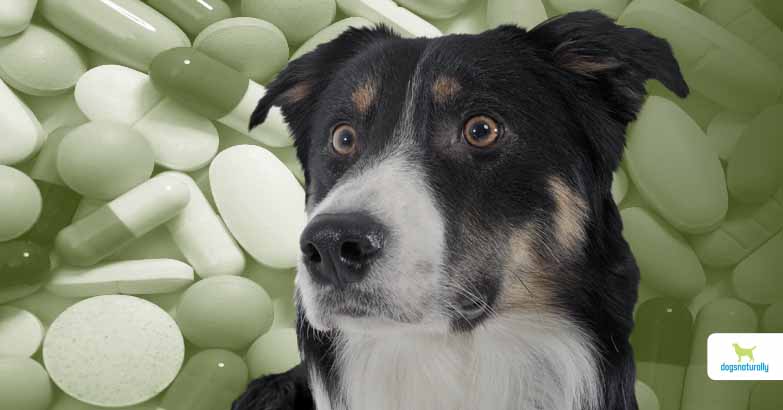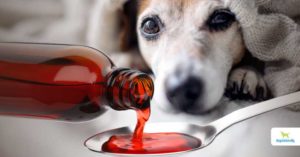You probably give your dog vitamins for one of three reasons:
- She has a health issue you hope the vitamins will help with.
- You want to make extra sure she’s getting all the vitamins she needs to stay healthy.
- You’re feeding her a complete food because it contains the vitamins she needs.
If you think these are great reasons for your dog to get vitamins and supplements, you’re not the only one. Research firm Mordor Intelligence reports the 2021 value of the pet industry supplements market was $102.5 billion, and it’s projected to keep growing. (This number includes supplements added to commercial pet foods, but it’s still a huge amount of money!)
But before you dig deeper into your pockets, let’s take a realistic look at whether vitamins are the best investment you can make in your dog’s health … because there are three important reasons why vitamins might not be a great idea. Read on to find out what vitamins are made of, whether they work, and where they’re made …
What Are Vitamins Made Of?
Most people think vitamins are natural. But most of the vitamins you’ll find in your dog’s supplements or food are made from waste products from the petroleum and coal industries and hydrogenated sugars.
Here are a few examples (and there’s a more detailed list below) …
- Vitamin A: Methanol, benzene, petroleum esters, acetylene, refined fish or palm oils
- Vitamin B-1: Coal tar derivatives, hydrochloric acid, acetonitrile with ammonia
- Vitamin B-9: Isobutyraldehyde with formaldehyde
- Vitamin B-12: Cobalamins reacted with cyanide (yep – cyanide)
- Vitamin C: Hydrogenated sugar processed with acetone
- Vitamin D: Irradiated animal fat/cattle brains or extracted with solvents
Do these chemicals sound like things your dog should eat? There’s really nothing natural happening here!
The truth is, vitamins are often made from these industrial waste products simply because it’s cheaper … and because they last longer than the vitamins found in real foods. This means they can sit on shelves for months or years, and can also be added to foods in super high doses.
But these cheap synthetic vitamins probably aren’t giving your dog the benefits she needs.
Do Man-Made Vitamins Work Like Natural Vitamins?
Naturally occurring vitamins and synthetic vitamins are different … really different.
They’re not in the same chemical form … so your dog’s body will have trouble recognizing and using the fake, synthetic vitamins. There are many studies showing that synthetic vitamins aren’t as bioavailable (which means your dog can’t use them like real vitamins from food).
This means most of the synthetic vitamins you put into your dog aren’t recognizable by his body. So they’re treated as toxins and excreted from the body (this is why your pee is yellow and smelly when you take vitamins … it’s detoxification).
This is hard on your dog’s kidneys and, over time, they can burn out.
So next, let’s look at some vitamins and compare them to their natural, food-based counterparts.
Vitamin A
Natural vitamin A appears in food as beta-carotene. Your dog must then convert this to vitamin A. This is good because vitamin A is toxic in large doses and beta-carotene regulates how much the body converts. Clinical trials show that high doses of vitamin A can increase mortality.
Vitamin B-9
This vitamin appears in food as folate and is very important for DNA health. It’s especially important during pregnancy. Synthetic B-9 is called folic acid. A 2004 paper from the British Medical Journal confirmed folic acid is unnatural and the body can’t fully convert large amounts of it into usable folate. The synthetic, artificial vitamin can be absorbed however, and this may carry unknown negative consequences.

Vitamin B-12
This vitamin is naturally created by micro-organisms like bacteria in the soil or intestines, as well as in some algae and seaweed. Synthetic B-12 is made by combining cobalt and cyanide (yes, cyanide). Researcher Victor Herbert claims “the efficacy and safety of the vitamin B12 analogues created by nutrient-nutrient interaction in vitamin-mineral supplements is unknown.” Synthetic vitamin B-12 can also cancel out natural vitamin B-12 activity.
Where Are Vitamins Made?
The answer is … mostly in China.
You may be trying to avoid Chinese ingredients for your dog. And that’s an excellent idea because China has a terrible track record when it comes to food safety … in 2007 alone, synthetic vitamin premixes from China killed over 4,000 cats and dogs.
Yet China owns over 90% of the vitamin C market in the US and most of the vitamins in dog foods are manufactured in China and India.This should worry you because only 2% of all imported vitamins are inspected. And China’s top vitamin and supplement producing areas are among the most polluted in the world.
Look For Real Vitamins
So synthetic vitamins aren’t a good choice for your dog. That’s obvious. But nearly all pet supplements and foods contain them. So how do you avoid giving your dog synthetic vitamins?
First, pay attention to the food you’re feeding your dog.
How To Spot Synthetic Vitamins In Dog Food
Nearly every commercial pet food, even some raw diets, contain synthetic vitamins. In fact, most kibbles and canned foods rely on synthetic vitamins for your dog’s nutrition.
Instead, look for fresh whole foods that don’t rely on synthetic vitamins.
Here’s a list of the natural and synthetic names of some common vitamins … so you can recognize them on the label. And we’ve included a more complete list of what synthetic vitamins are made of. And you’ll see natural dietary sources of each vitamin so you can give your dog vitamins from fresh whole foods.
Vitamin A
Natural Name: Beta Carotene (look for these terms on the label: “from D. salina”, “from seaweed” or “natural”).
Found In: liver, salmon, mackerel, herring, eggs, carrots, kale, spinach, beet greens, swiss chard, sweet potato, pumpkin, squash, cantaloupe, romaine lettuce, sweet, red, green and yellow peppers, dairy.
Synthetic Names: Vitamin A acetate, vitamin A palmitate, beta carotene, retinyl palmitate, retinyl acetate.
Made From: Combination of fish, palm or refined oils with beta-ionone. Beta-ionone is manufactured using citrus, acetone and calcium oxide.
Vitamin B-1
Natural Name: Thiamin
Found in: Trout, tuna, mackerel, salmon, pork, venison, chicken liver, pork liver, pumpkin seeds, sunflower seeds, green peas, squash, asparagus.
Synthetic Names: Thiamine monohydrate, thiamine mononitrate, thiamine hydrochloride.
Made From: Coal tar, ammonia, acetone and hydrochloric acid.
Vitamin B2
Natural Name: Riboflavin
Found In: Meat and organ meats, eggs, beans and legumes, seaweed and leafy green vegetables.
Synthetic Names: Vitamin B2, riboflavin
Made From: Acetic acid and nitrogen, or using genetically modified bacteria and fermentation.
Vitamin B3
Natural Name: Niacin
Found In: Beef, legumes, grains, yeast, fish.
Synthetic Names: Niacin, niacinamide.
Made From: Coal tar, ammonia, acids, and formaldehyde.
Vitamin B5
Natural Name: Pantothenate
Found In: Trout, salmon, tuna, eggs, lean pork, beef, chicken, turkey, organ meat, pumpkin seeds, flaxseed, sunflower seeds, sweet potato, broccoli, cauliflower, dairy.
Synthetic Names: Calcium pantothenate, d-pantothenate, panthenol.
Made From: isobutyr- aldehyde and formaldehyde to form a calcium or sodium salt.
Vitamin B6
Natural Name: Pyridoxine
Found In: Organ meats, Salmon, herring, halibut, tuna, turkey, chicken, lean pork, lean beef, bananas, squash, spinach, sunflower seeds, pumpkin seeds, flaxseed.
Synthetic Names: Pyridoxine hydrochloride, pyridoxine HCL.
Made From: Petroleum ester, hydrochloric acid and formaldehyde.
Vitamin B7
Natural Name: Biotin or d (+) biotin.
Found In: Black eyed peas, pinto beans, black beans, kidney beans, spinach, asparagus,
collard greens, romaine lettuce, broccoli, citrus fruits, flaxseed, sunflower seeds, cauliflower, carrots, squash.
Synthetic Names: Vitamin B7, biotin.
Made From: Petroleum, hydrochloric acid and formaldeyde.
Vitamin B9
Natural Name: Folate
Found In: Black eyed peas, pinto beans, black beans, kidney beans, spinach, asparagus,
collard greens, romaine lettuce, broccoli, citrus fruits, flaxseed, sunflower seeds, cauliflower, carrots, squash.
Synthetic Name: Folic acid.
Made From: Petroleum derivatives, acids and acetylene.
Vitamin B12
Natural Names: Choline, phosphatidyl choline
Found In: Liver, heart, kidney, rabbit, chicken, turkey, pork, lamb, goat, ostrich, buffalo, egg, beef, salmon, halibut, haddock, mackerel, sardine, dairy.
Synthetic Names: Choline chloride, choline bitartrate.
Made From: Ethylene, ammonia and hydrochloric acid or tartaric acid.
Vitamin C
Natural Names: Ascorbate or dehydroascorbate.
Found In: Liver, kidney, heart, fish, spinach, kale, swiss chard, watercress, broccoli, cauliflower, red bell pepper, brussel sprouts, pineapple, kiwi, cantaloupe.
Synthetic Name: Ascorbic acid, any type of ascorbate.
Made From: Genetically modified corn sugar that’s hydrogenated and processed with acetone.
Vitamin D
Natural Name: Vitamin D – and it’s actually a downstream metabolite of cholesterol. It’s more of a hormone than a vitamin.
Found In: Egg, sardine, liver, kidney, salmon, tuna, dairy, turnip.
Synthetic Names: Vitamin D1, D2, D3, D4, cholecalciferol or lumistero.
Made From: Animal fat or cattle brains, and is either irradiated or extracted with solvents.
Vitamin E
Natural Name: RRR-alpha- tocopherol.
Found In: Ostrich, buffalo, egg, halibut, haddock, sardine, kidney, liver, brain, kelp, spinach, swiss chard, dandelion, red bell pepper, turnip.
Synthetic Names: Vitamin E acetate; mixed tocopherols; all-rac-alpha- tocopherol; d-l-alpha-tocopherol; d-alpha- tocopherol (isolated); dl-alpha- tocopheryl acetate and any acetate. (The d or dl form of any vitamin is synthetic.)
Made From: Refined oils.
Vitamin K
Natural Name: Phylloquinone
Found In: Egg, halibut, haddock, sardine, liver, kelp.
Synthetic Names: Vitamin K3; menadione; phytonadione; naphthoquinone; dihydro-vitamin K1.
Made From: Coal tar.
Food Label Examples
Here’s an ingredient label from a “natural” kibble … you can see that it’s fortified with synthetic vitamins.

Look for the same on your dog’s bag or can of food … and if you see the synthetic names listed above, look for a food that doesn’t contain them.
Here’s an ingredient label from a kibble that doesn’t rely on synthetic, chemical-based vitamins for its nutrition.

While virtually every kibble on the planet is fortified with synthetic vitamins or minerals, there are two that I’m aware of that aren’t. These are:
Carna4
Nature’s Logic
Some Acana formulas have minimal synthetic vitamins (formulas vary so you’ll need to check labels before you buy).
That’s a pretty short list. The rest of the hundreds of commercial foods all rely on synthetic, chemical-based nutrition.
Pre-made raw foods are less likely to contain synthetic vitamins. There are quite a few raw brands that contain whole food vitamins, along with important cofactors and critical phytonutrients that make them useable and safe for your dog.
Vitamins In Supplements
If you’re giving your dog a supplement, these are also commonly loaded with synthetic vitamins. Look for a supplement that includes whole food vitamins instead of their synthetic counterparts.
You can tell by looking for the synthetic names above. If the label looks like it has chemicals on it, then they’re chemicals! These fake vitamins, even if they say they’re vitamins, are chemical isolates, are most likely manufactured from petroleum and coal tar waste.
There are whole food multivitamins and single vitamins available for your dog. Some natural food-based brands include:
Standard Process
Garden Of Life
Biotics Research
There are many other healthy supplements that use herbs and natural products instead of synthetic vitamins … now that you know what to look for, you’ll be able to tell, just by looking at the label.
DNM RECOMMENDS: Four Leaf Rover offers Guts & Glory, a blend of grass-fed organs and glands that are rich in natural nutrients for your dog. Buy Guts & Glory now >>
In summary, researchers don’t know all that much about how synthetic vitamins work in our dogs’ bodies and there’s even research showing they can cause health issues and even premature death in your dog.
References
Eliseo Guallar, MD, DrPH et al. Enough Is Enough: Stop Wasting Money on Vitamin and Mineral Supplements. Annals Internal Medicine, December 17, 2013, Volume 159, Issue 12.
Patrick L. Beta-carotene: the controversy continues. Altern Med Rev. 2000 Dec;5(6):530-45.
R.J. Thiel. Natural vitamins may be superior to synthetic ones. Medical Hypotheses, Volume 55, Issue 6, 2000












